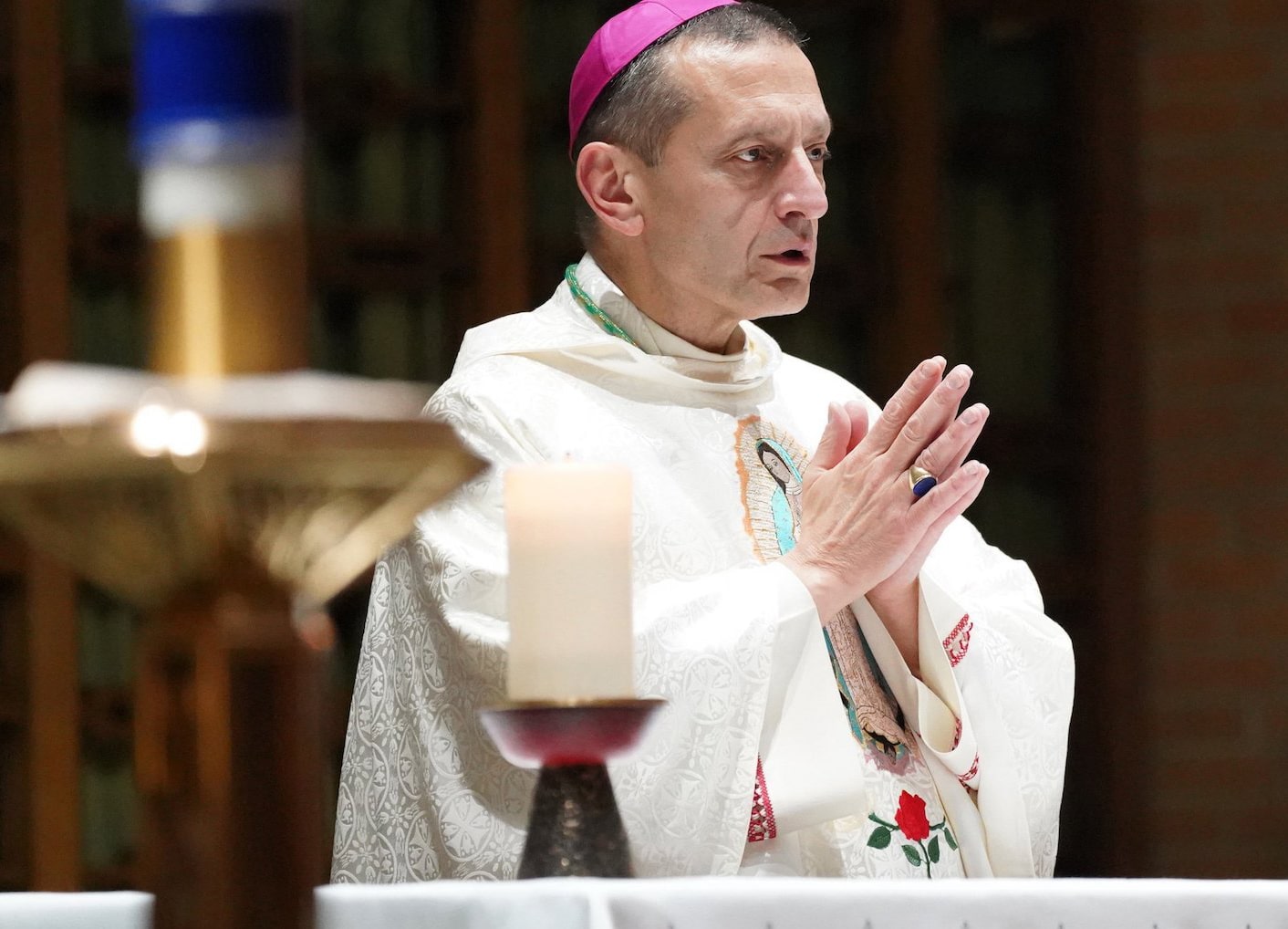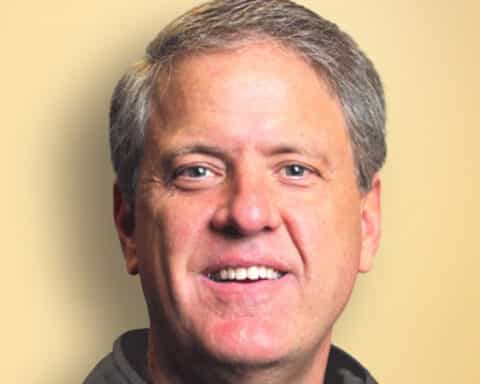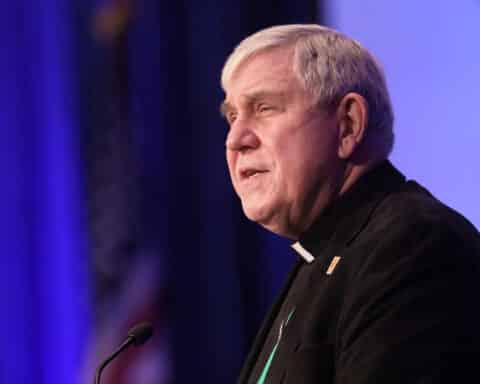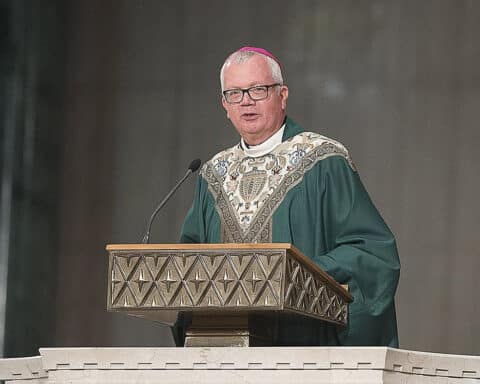Bishop Frank J. Caggiano of Bridgeport, Conn., provided an update on the newly launched Institute on the Catechism to the U.S. Catholic bishops during their annual fall plenary assembly Nov. 15 in Baltimore, Md.
Housed within the U.S. Conference of Catholic Bishops’ (USCCB) Secretariat for Evangelization and Catechesis, the outreach initiative launched in 2022 to “proclaim a kerygmatic, evangelizing catechesis to the Catholic faithful in the United States, through the Catechism of the Catholic Church and the guidance of the Directory for Catechesis.”
As chair of the bishops’ Subcommittee on the Catechism, which is responsible for the institute, Caggiano listed recent milestones: Father Daniel J. Mahan, a priest of the Archdiocese of Indianapolis, began serving as director in July; a new handbook to guide writers and editors of the creation of catechetical resources is nearing completion; and an upcoming Institute on the Catechism Convocation will be held in Mundelein, Ill., June 17-20, 2024.
Caggiano also shared with Our Sunday Visitor that they now have an accompaniment specialist who is dedicated solely to walking with bishops and their staff.
A response to the call to evangelize
During his remarks, he cited the institute’s work as in line with the Vatican’s Directory for Catechesis, issued in 2020, where, he said, Pope Francis “calls us to embrace kerygmatic catechesis and to see catechesis within the larger lens of evangelization.”
“Catechesis is a privileged moment within a larger process of announcing good news, that is the good news of Christ’s offer and message of forgiveness and mercy, love and salvation, offered to every human person,” he stressed.
The institute’s phrasing of “evangelizing catechesis,” he said, summarizes this imperative. The institute, on its website, defines evangelizing catechesis as seeking “to deepen a personal encounter with Jesus Christ through the power of the Holy Spirit.”
“Such opportunities to encounter the Lord through the power of truth, through the exposition most especially of that which we believe, the richness of beauty and the power of goodness,” Caggiano said, “creates a relationship with the Lord that deepens over an entire lifetime, that addresses the whole person, his or her heart and mind and will, and seeks ongoing personal conversion so that every believer can know, love, and serve the Lord in mission in the world.”
Catechesis linked to revival
He highlighted its participation with the ongoing National Eucharistic Revival — a movement to renew the Church by enkindling a living relationship with Christ in the holy Eucharist.
“Such a personal relationship with the Lord will also lead to an ever fuller participation in the sacramental life of the Church, culminating in the full, active, and conscious participation in the Eucharist,” he said. “We are living in the midst of many blessings coming out of the Eucharistic Revival, and allow me to suggest that those blessings can have generational change if you and I work together to make this vision a reality.”
Caggiano first proposed creating an Institute for the Catechism at the bishops’ 2021 spring meeting. The institute aligns with the bishops’ Subcommittee on the Catechism, which assists the U.S. bishops as the chief catechists in their dioceses while promoting the authentic implementation of the Catechism of the Catholic Church.
Caggiano told Our Sunday Visitor about his focus with the institute ahead of his update.
“Most of my remarks are going to remind the bishops why we have an institute in the first place,” he said. “And of course, it’s all about this new model, this new vision of evangelizing catechesis, what the Holy Father calls kerygmatic catechesis.”
He shared that the institute would “dramatically” affect the lives of everyday Catholics.
‘Seeking transformational change’
“There’s a line in my presentation that says we are seeking transformational change and therefore we need to embrace a spirit of patience and humility because it will take time for the real spiritual fruit to be shown,” he added.
He expressed a need for change.
“Basically, right now we see, in many classrooms, in many parishes, that confirmation is graduation. They leave,” he said. “We have many parents, for example, who are totally divorced from the formation of their children. We have young couples, for example, who are coming forward to marriage and perhaps have a day of formation and that’s it.”
“The culture has to radically change to say that we’re always in formation, that the formation is mind, heart, and will, that formation is lifelong, that it starts with a recognition that this Jesus [is] someone who’s coming as my savior — savior from my restlessness, my anxiety, my sin, from death,” he said. “And I’m going to walk with him.”
He presented an analogy to illustrate evangelizing catechesis: Falling in love.
“If you really fall in love with a person, truly, fully in love, then you’re going to sacrifice for the person, and do what’s good for the person, you could even give up your life for that person,” he said. “That’s the discipleship in Jesus Christ. That’s the vision of evangelizing catechesis.”





